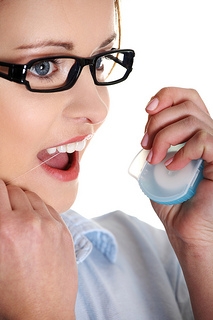I’ve lost a filling; now what?
July 19th, 2023

Dental fillings usually protect our teeth, but sometimes they need to be protected, too. If you lose a filling, contact our Charlotte office immediately and let us advise you on the next steps to take.
Fillings serve an important function in oral health by preserving the structural integrity of your tooth. With the materials we use today, dental fillings usually last for many years, but they are subjected to the same stresses as your natural teeth are.
You can wear down, chip, crack, or break your fillings by eating, clenching, and grinding, and sometimes they can fall out completely. While you may not notice normal wear and tear, you should not ignore any fillings that loosen or fall out. Contact us as soon as possible so we can advise you about whether you need to be seen immediately.
If your fillings get damaged or fall out, a timely response can be important. There may be gaps or holes in your tooth which provide an easy access point for bacteria. Once bacteria begin working into your tooth structure, your tooth could become damaged even worse. Since cavities usually form in hard-to-reach places, it will be difficult for you to remove these bacteria through brushing alone.
When is a lost filling an emergency?
A lost or cracked filling is usually not an emergency unless you are in great pain or are bleeding excessively. In that case, contact our office immediately so we can schedule an emergency appointment. Otherwise we will schedule a regular appointment to evaluate and repair your filling. Before coming in for your appointment, try to avoid chewing on that side of your mouth, rinse with warm salt water, and be sure to brush and floss thoroughly after every meal.
Once you come to our office, Dr. Chad Vanourny will examine your tooth, assess the situation, and advise you of your options. We may be able to replace the filling and can discuss whether an amalgam or composite material would be the best for your teeth. If the filling was large, a root canal or a dental implant and crown may be necessary.
A lost or cracked filling may not always pose a dental emergency, but it’s always important to contact us so our team can help you take the proper action to preserve your oral health.




 Website Powered by Sesame 24-7™
Website Powered by Sesame 24-7™